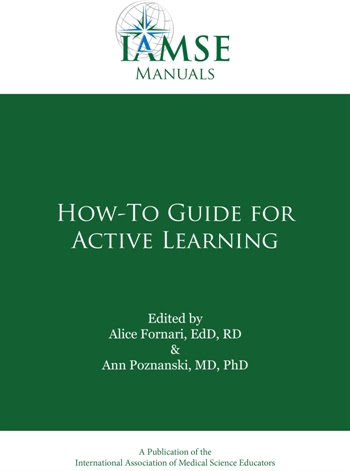[The following notes were generated by Andrea Belovich, PhD.]
IAMSE Webinar Series, Fall 2019
Speaker: Darin Latimore, MD
Title: Recruiting, Retaining and Developing a Diverse Faculty
Series: Re-imagining Faculty Development in Health Professions Education
The Fall 2019 IAMSE Web Seminar Series entitled “Re-imagining Faculty Development in Health Professions Education,” is focused on providing participants with practical tips for developing their own skills as well as insight into how to become engaged with and possibly improve the faculty development culture within their institutions. The second installment of this series, entitled, “Recruiting and developing a diverse faculty,” was delivered by Dr. Darin Latimore, the Deputy Dean for and inaugural Chief Officer of Diversity and Inclusion at the Yale School of Medicine. Dr. Latimore holds leading roles in developing a comprehensive plan for furthering diversity, equity, and inclusion at the Yale School of Medicine, including a robust recruitment and retention program for faculty and students from historically underrepresented medical communities. During his talk, Dr. Latimore outlined the need for growing the underrepresented minority (URM) component of the physician workforce, explored best practices for robust recruitment of URM faculty in medicine, and summarized effective strategies medical schools have used to retain URM faculty.
Dr. Latimore first emphasized the need for recruiting and retaining URM faculty, which he defined to include Black/African American, Hispanic/Latinx, and Native American/Pacific Islander faculty. When comparing demographic data between United States medical school faculty1 and the general United States population2, there is a much lower percentage of URMs in faculty (especially in the ranks of associate and full professor1) compared to the general population. In particular, the percentages of faculty from URMs Dr. Latimore identified have not increased by even 1% over the last 15 years across all medical schools.
To underscore the value of diversity in medicine, Dr. Latimore discussed several studies across multiple fields (including business and academia) to show that teams rich in diversity produce higher quality of outcomes3,4,5,6,7. In addition, the patient-physician race concordance is highly relevant for medical care, as patients are more likely to visit physicians with a similar race/ethnicity as themselves8 and tend to perceive physician-patient communication as being poorer when there is a racial/ethnic discordance9. Dr. Latimore stated that URM physicians are also more likely to see underinsured or uninsured patients of all ethnicities, emphasizing the role URM physicians play in addressing healthcare inequity in the United States.
To recruit URM faculty, Dr. Latimore suggested developing learners in the campus “pipeline” by intentionally developing an inclusive culture and allowing URM learners (medical students, residents, and fellows) opportunities to envision themselves (and/or remain) as faculty10. He also discussed examples of such efforts being implemented at Yale School of Medicine, including URM mentorship programs, curriculum revisions to focus on health equity, and mitigation of microaggressions, harassment, and discrimination more proactively when reported. Yale also provides several opportunities for URM learners to network and interact with URM faculty, including a lecture series given by MD, PhD, and resident Yale alumni. Anecdotally, Dr. Latimore discussed that post-exit interviews report that these interventions have led to greater engagement with Yale and the community.
Dr. Latimore next discussed strategies to recruit URM faculty through proactive prospecting. Prior to posting job opportunities, utilize existing faculty networks, NIH-funded grant databases, and conference activities to identify potential candidates10. Unconscious bias training, increasing diversity of search committees and charging search committees to identify candidates of diverse backgrounds can help identify qualified URM faculty candidates11. Contacting diversity subcommittees of organizations can also help when deciding where and how to advertise job postings or locate potential URM candidates. Finally, ensuring the candidate search process and the interview experience are equitable across all demographics is essential to successful recruitment11.
Dr. Latimore also discussed Yale University’s holistic approach to faculty recruitment packages. Rather than offering recruitment packages through individual departments, Yale utilizes a centrally located fund that allows for strategic application and flexibility to adjust funding priorities based on need. The Yale University 50 million Faculty Excellence and Diversity Initiative has facilitated 65 recruitments campus-wide over 3 years, and funds up to 50% of faculty salary (or non-salary requirements) for up to 3 years12.
One of the major challenges to recruiting diverse faculty is the lack of “critical mass” of URM faculty at medical schools to attract other potential candidates13. The cohort recruitment method encourages the recruitment of multiple URM faculty simultaneously to rapidly establish a diverse environment. This method of recruitment has been effective for institutions with very few URM faculty.
Shifting towards the retention of URM faculty, Dr. Latimore discussed two major factors as being important: fostering an inclusive culture at the institutional level and having formal programs geared towards URM professional development and networking at the individual level. Using the University of California San Diego School of Medicine as a case study, Dr. Latimore described a Junior faculty development program (National Center for Leadership in Academic Medicine: NCLAM) with an 87% (13/15) retention rate of participating URM faculty hired in 200514,15. For comparison, USCD has a 58% retention rate of all faculty recruited in 2005, including URM and women faculty subgroups15. This comprehensive program (with funding assistance from a center of excellence grant) provides structured mentorship and sponsorships to junior faculty and is especially proactive in including URM and women junior faculty. The program offers counseling, completion of a professional development project, and several sessions with mentors. Mentors agree to partner with their mentees on projects, critique scholarly work, promote mentees at networking events, advocate for leadership roles for mentees at conference sessions, and encourage invitations to submit manuscripts.
An example of a faculty retention program implemented at Yale is the Minority Organization for Retention and Expansion (M.O.R.E.), a self-run faculty organization supported by Dr. Latimore’s office and the Dean16. The organization offers network/community-building events and open lunches based on topics including appointments and promotion groups, increasing URM presence in leadership, internal and external grant opportunities, and resources to handle bias and discriminatory behavior. In addition to hosting an annual professional development retreat, each department is encouraged to have a junior URM faculty mentorship program run by senior URM faculty. Other initiatives at Yale to promote URM faculty development and retention include a pilot junior faculty coaching program, with a (1-5 year) professional development plan as an outcome, participation in AAMC minority professional development programs for junior and mid-career faculty, and coordinated sessions with media experts to help minority faculty increase career exposure and influence at the national level17.
Dr. Latimore also discussed the importance of developing diverse leaders who will not only mentor URM faculty to encourage individual development but also actively seek and advocate career advancement opportunities for their faculty as a sponsor18. For institutions looking to establish these sponsorship initiatives, it is important to consider the compatibility between mentors and mentees to promote faculty satisfaction with mentorship.
Dr. Latimore concluded by emphasizing the importance of working on institutional climates to promote successful inclusion and retention of URM faculty. Understanding and monitoring the institutional culture is challenging, but focus groups, one-on-one meetings, and exit interviews can help identify areas that need improvement. Since even the most excellent URM faculty may not be able to thrive in a culture of bias hostility or exclusion, inclusive environments are needed, and the environment must be developed as much as the individual faculty.
References (as provided by Dr. Latimore):
1. “Medical School Faculty by Sex and Race/Ethnicity” (2019). Association of American Medical Colleges
2. “United States Census” (2018.) United States Census
3. Hong L., Page SE., 2004
4. Rohner V., Dougan B., 2012
5. Dendon N., Chang MJ., 2019
6. Freeman, R., Huang W., “ Collaborating with People Like Me: Ethnic Coauthor ship within the United States.” J. Labor Economics, Vol. 33 (3) 2015.
7. Campbell L.G., et. al., “Gender-Heterogenous Walking Groups Provide Higher Quality Science.” PLUS-ONE, Vol. 8 (10) 2013.
8. Simon, A.E., et al., “Physician-Patient Race Concordance from the Physician Perspective,” J Natl Med Assoc. 105; 150-156; 2013.
9. Shen, M.J., et al., J. Racial & Ethnic Health Disparities March 2017.
10. Peek M.E., et al., “URM Candidate Are Encouraged to Apply: A national Study to Identify Effective Strategies to Enhance Racial and Ethnic Faculty Diversity in Academic Departments of Medicine”. Acad. Med. ; 88 (3) 405-412, March 2013.
11. Christopher D. Lee. Search Committees: A Comprehensive Guide to Successful Faculty, Staff, and Administrative Searches. 2nd edition. Sterling, VA: Stylus Publishing, 2014.
12. Faculty.yale.edu/faculty-excellence–and-diversity
13. Kaplan, S.E., et al., “Challenges in Recruiting Retaining and Promoting Racially and Ethnically Diverse Faculty,” J Natl Med Assoc, Vol. 110 (1) 58-65, 2018.
14. Assoc, Vol 111 (1) 44-53, 2019.
Daley S., et al., “ Improving the Retention of Underrepresented Minority Faculty in Academic Medicine,” J Natl Med Assoc, Vol 98 (9) 1435-1440, 2006.
15. Wingned D., et al. “ Faculty, Equity, Diversity Culture and Climate Change in Academic Medicine. A Longitudinal Study,” J Natl Med
16. https://medicine.yale.edu/more
17. https://medicine.yale.edu/diversity
18. Raphael J.L., “ The Role of Sponsorship in Achieving Workforce Diversity in Academic Pediatrics.” Pediatrics; 144 (2) 1-4, 2019.

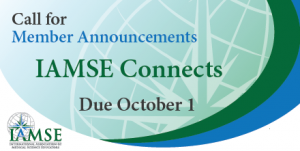
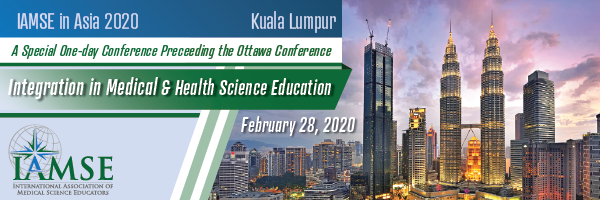
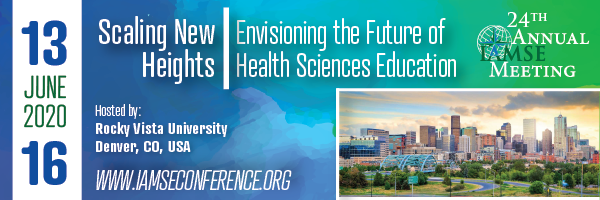
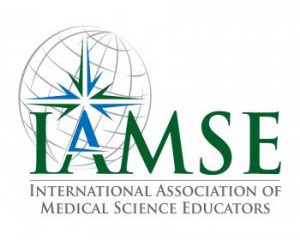
 Due September 15
Due September 15
